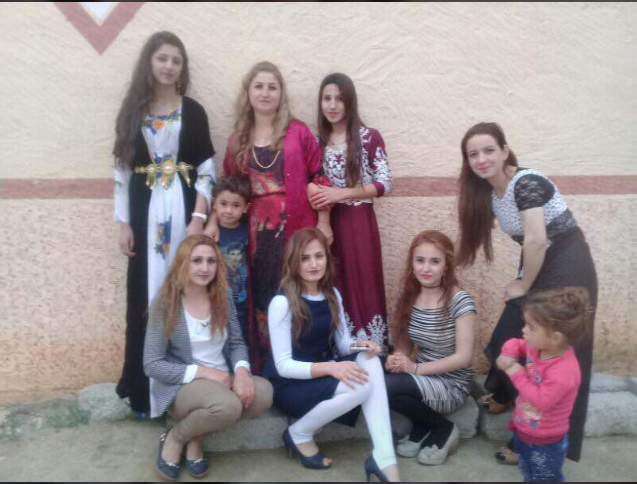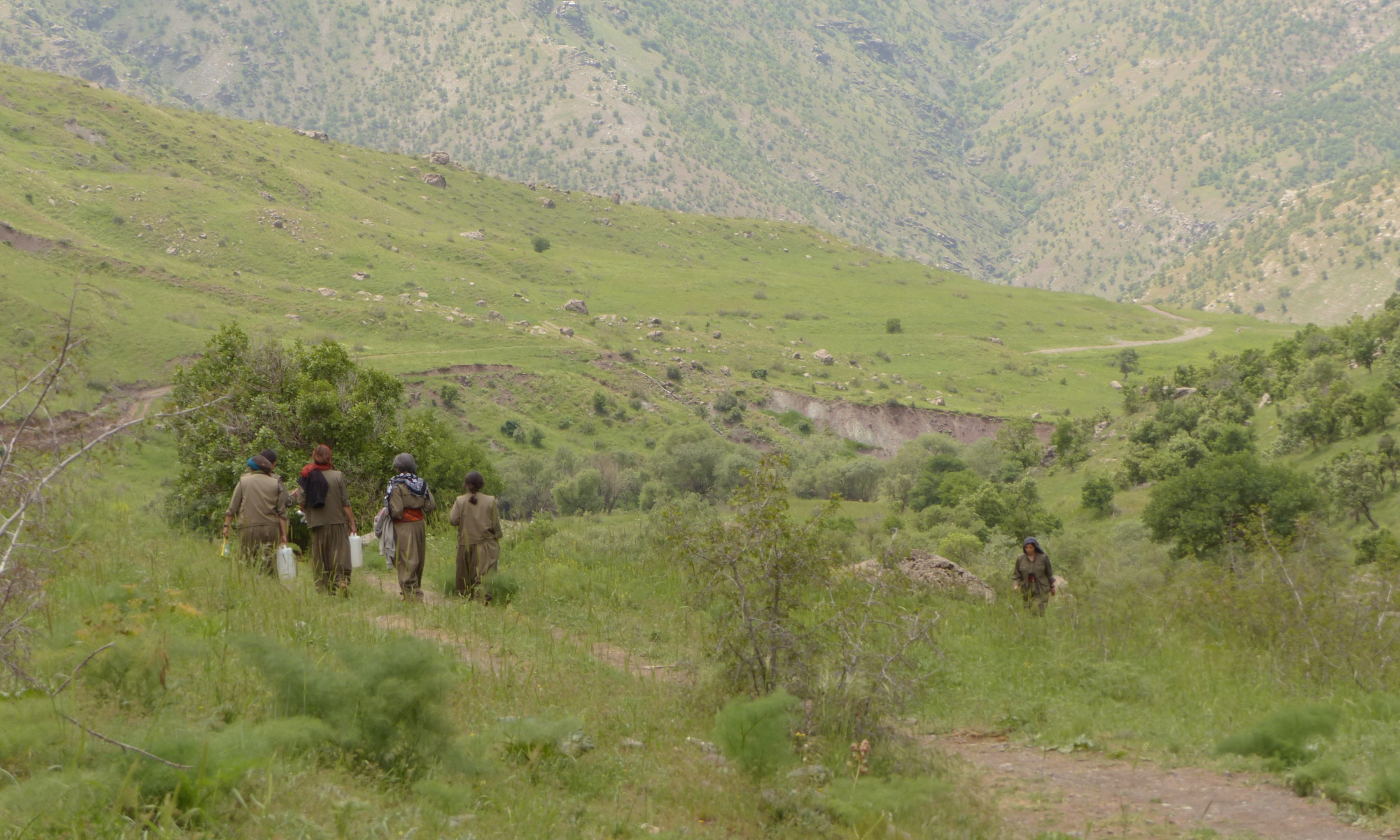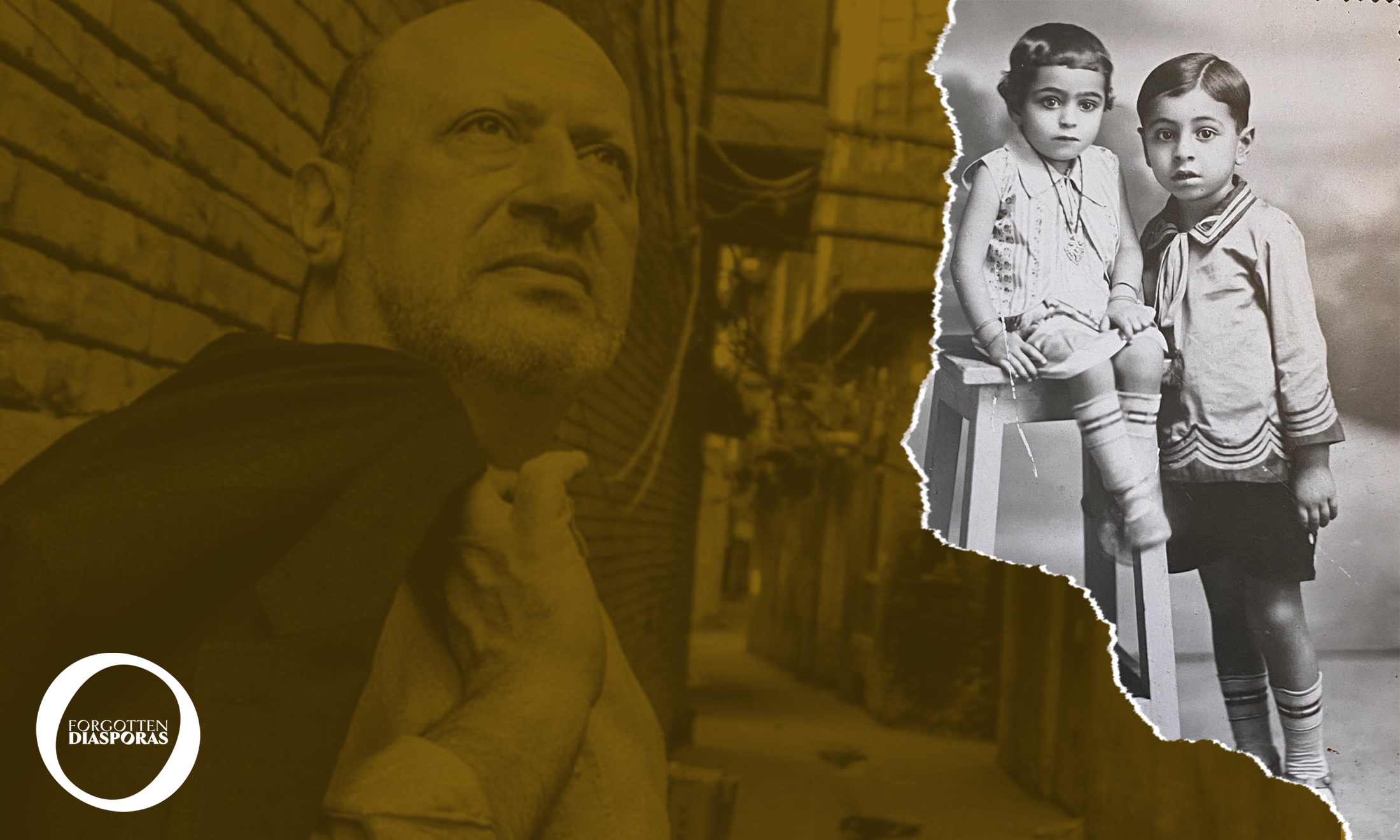
After working my ass off as a teenager to financially support my mum, I finally got into university with a scholarship. But while I was busy deconstructing my environment and soaking in radical feminism, I suddenly had to confront genocide.
It was August 2014 when Daesh attacked the Yazidi Kurds in Northern Iraq. They put thousands of women and girls into sexual slavery, killed all of the men and kidnapped the boys to brainwash them into becoming terrorist soldiers. Luckily I wasn’t one of them. My Yazidi family flew to Germany twenty years ago. But the impact of the genocide on Yazidi women living in the diaspora is indelible.
The Yazidis are an ethnic minority rooted in the country of Kurdistan, which is divided into four and colonised by Turkey, Iran, Iraq and Syria. My family was living in the Turkish part of Kurdistan where they had been discriminated against on a national level as Kurds and also on a religious level as Yazidis. When the oppression became insurmountable, my family flew to Germany. I remember growing up in a little social housing apartment infested with cockroaches, but we were happy because we were safe.
I watched my parents constructing their new lives in Germany with confidence, even though they missed their home country that was increasingly becoming shaped by war and devastation. When I ask my mum about the time in Kurdistan and the situation of Yazidi women, she mostly remains quiet. She remembers the humiliation she experienced. Already back then Yazidi women were under institutional pressures: being refused medication when they wanted to see a doctor, forced to convert to Islam and regularly being kidnapped. “We had to cover our heads to claim we were Muslims”, Mum told me. Whilst we had friends and neighbours who were moderate Muslims, on a structural level Yazidis were not accepted under Muslim supremacy, and neither were Alevi kurds and other religious minorities.
When she arrived in Germany my Mum was 20 years old, not very independent and insecure. 22 years later I can see how struggling her way through life as a migrant mother who had to face three miscarriages, become financially independent from my father and provide for herself turned her into the unbelievably strong woman she is today. Until recently, she seemed to have found peace; her thoughts didn’t appear to be totally shaped by fear of war and death, like she tells me they were when she was living in Kurdistan. In this past few years this has changed. The peace she had found is strained since the Yazidi community had to face genocide again.
For me August 2014 was a game changer. I was just coming back from doing an academic exchange year abroad when I got the news that the Yazidis were facing genocide. Swapping books for activism I rocketed from one demonstration to another, unsure of what had happened to all the women that were kidnapped, and constantly worried about all the people trapped in the dry mountains of Northern Iraq who had tried to flee from terror. Everyone in our Yazidi community was trying to do something or at least raise their voices. But over time, the demonstrations became less frequent, the press got quiet and conversations changed from daily to once in a blue moon. What I observe now, almost three years after the attack, that was met with a temporary wave of activism, is the trauma that followed. This media silence has allowed time for us to reflect on what the attack actually did to our community, now living almost completely in the diaspora since the last piece of land that remained our home country has been destroyed.
There were days when I couldn’t sleep at night because all I could think of were the young girls being gang raped by terrorists, burned alive because they resisted rape, and being abused so many times that they died from internal bleeding. Even though I wasn’t even one of the ones being kidnapped, as a Yazidi woman living in the diaspora I was forced to deal with a constant carousel of news and pictures that I felt painfully connected to- knowing I belonged to the group of people that Daesh wanted to see dead.
At times the violent reality of it simply feels too much, too heavy, too unrelated to my everyday reality as a young urban citizen who likes feminism, fashion and pop culture. Sometimes I sit in my room painting my nails and thinking about what my Yazidi sisters are doing right now. Do they have to eat dinner with the ones who will abuse them afterwards? Has their life somehow transformed into normality? Do they cry right now? Do they continue to attempt to escape?
The genocide also changed my attitude towards discrimination against any minority and the broader history of ethnic cleansing. Experiencing something like this on a personal level, feeling and knowing that you are the target, also nurtures a sense of solidarity towards other people’s’ fights against any form of supremacy and oppression.
I also have thought about the act of resilience a lot. There are so many strong Yazidi women out there who managed to escape from Deash captivity and now raise their voices as activists such as Nadia Murad or Lamija Adschi Baschar. Many Kurdish writers and artists deal with the trauma of war and genocide through artistic expression, as I do. Losing the last piece of motherland builds resilience as much as it causes resignation.
These days, I see the fear in the eyes of my mother, the fear of a struggle she thought was over 20 years ago, suddenly returning because progress is moving slowly. How are we Yazidi women going to deal with this situation while over 3000 of us are still being held captive? Who are we going to trust when we know that within almost three years of an ongoing genocide international forces were not able to free our girls and women? How are we going to find not only hope but belief in the existence of our future?
I got a phone call from my mum a while ago. She asked when I would next be around so she could take my measurements, as my cousin is getting married in summer and she wants to sew traditional Kurdish dresses. After I hung up I knew that moment meant everything. It showed me that Yazidi women are still here: they fight, celebrate weddings and write papers. Even though I feel so hopeless at times when I read that thousands of us are still going through a horror I don’t want to imagine, I know that there is still something we can do; exist.

Britain’s policing was built on racism. Abolition is unavoidable

How Pakistan’s Khwaja Sira and transgender communities are fearing and fighting for their futures

Their anti-rape performance went viral globally. Now what?





